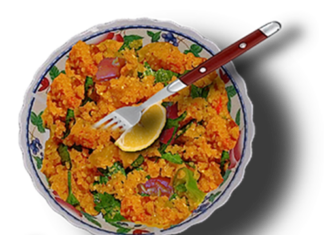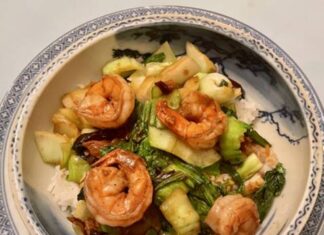FOLSOM, Calif. — These Greek-inspired walnut meatballs from talented food blogger and author Maria Koutsogiannis are featured at the California Walnut Board (CWB) website (https://walnuts.org/), and can be enjoyed as appetizers or as a side or main dish.
Maria, a Greek Canadian, is the creator of FoodByMaria (https://www.foodbymaria.com/). Her popular recipes have been published in Impact Magazine, Spoonful: A Guide to Food and Laughter, Whole Foods, and Food Network Canada. FoodByMaria is on a mission to change the way many people eat and understand their food. She uses her website to share her love for appetizing, healthy, plant-based eating. The FoodByMaria App features over 140 plant-based healthy, nutritious, and simple recipes, colorful breakfasts, simple snacks, nutrient-rich dinners, and desserts so decadent you won’t believe they contain no sugar (https://www.foodbymaria.com/shop/).
Walnuts are a multipurpose nut with a flavor profile that pairs beautifully with foods. There is a long list of benefits that come with walnuts that work well as a meat substitute; they can be incorporated in a variety of recipes anytime of the year. Walnuts are a gluten-free food that can be used in sweet and savory dishes; they add a delicious, nutty flavor to cakes, breads, pestos, sauces, salads, chutneys and more. They add crunch to salads and side dishes, boost the nutrient content of desserts, cookies, and snack bars, and are perfect as a plant-based crumble in tacos, burritos, casseroles, and more. Use a food processor to pulse walnuts and either mushrooms, cauliflower or beans, with desired seasoning, for use as a replacement in scrambles and toppings.
To download the California Walnuts Simple Recipes and Tips Cookbook, go to: https://walnuts.org/wp-content/uploads/2020/06/CWB-N0157-Simple-Recipes-Booklet_sp.pdf
“Established in 1948, the CWB represents walnut growers and handlers of California,” says Michelle McNeil Connelly, CWB Executive Director. “People are surprised to learn that over 99 percent of the walnuts in U.S. are grown in the fertile soils of California’s Central Valley. California walnuts supply over half of the world’s walnut trade,” she adds. California-grown walnuts are not genetically modified. California’s walnut industry understands consumer concerns regarding genetically modified foods. The CWB works with the University of California’s walnut breeding program to release new walnut varieties for planting that have been developed through conventional breeding methods. (The CWB does not anticipate production of genetically modified walnuts in California in the foreseeable future.)
There are over 4,400 California walnut growers, and most farms are owned and operated by families who have been in the walnut business for several generations. For over 30 years, the California Walnut Commission has also supported health-related research examining the effect of walnut consumption on areas including heart health, cognition, cancer, diabetes, metabolic syndrome, gut health, body weight/composition, reproductive health and more.”











